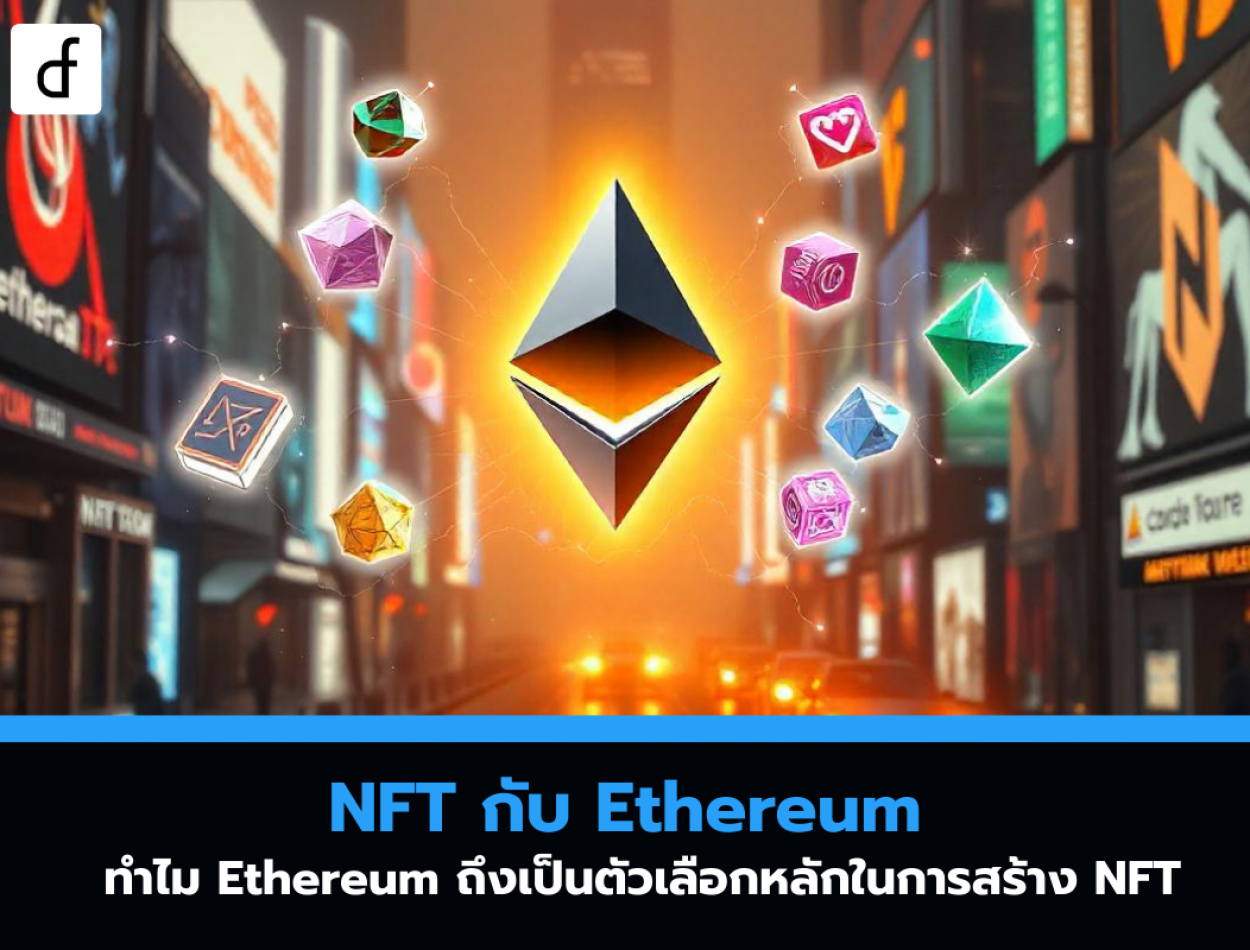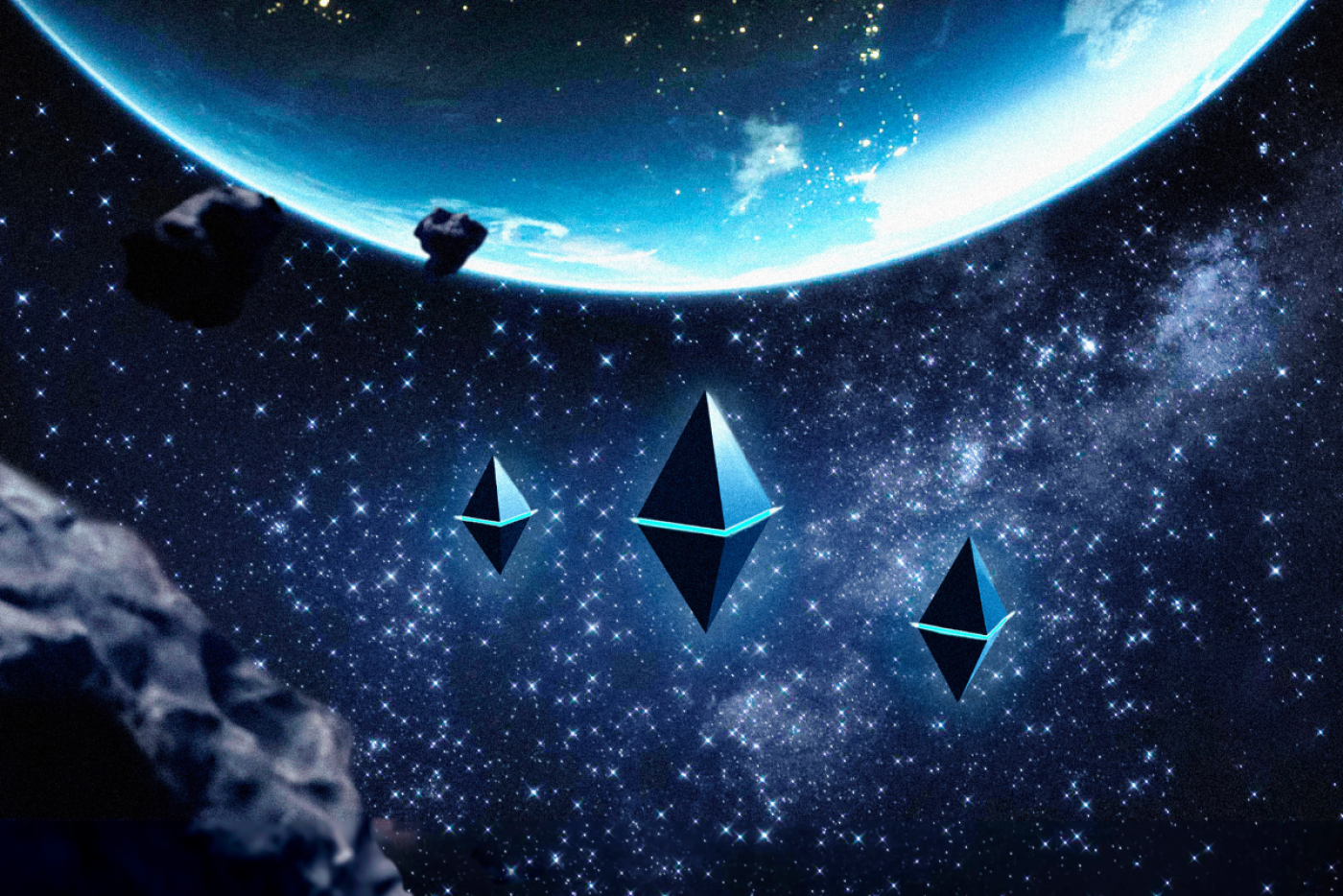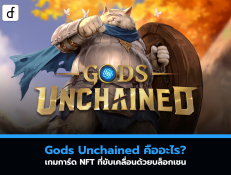
NFT and Ethereum: Why Ethereum is the Main Choice for Creating NFTs
2024-11-25 03:22:48
NFTs, or Non-Fungible Tokens, are becoming popular in the fields of art, music, gaming, and the entertainment industry. With their ability to demonstrate ownership and uniqueness that cannot be replaced, NFTs hold a unique value in the digital market. Currently, Ethereum is the primary network chosen for the widespread creation and management of NFTs, due to several reasons that enhance the convenience and security of NFT transactions.

The infrastructure of Ethereum that supports working with NFTs
Ethereum is a blockchain that supports Smart Contracts, which are a crucial foundation for creating and managing NFTs. This allows for the creation of tokens with unique characteristics according to the ERC-721 and ERC-1155 standards. These standards enable NFTs to have properties that differentiate them from regular tokens and to demonstrate ownership of digital assets completely and securely.
- ERC-721 Standard: This standard is the main framework used for creating NFTs, focusing on defining the uniqueness of each token, making one token irreplaceable by another.
- ERC-1155 Standard: A more flexible standard than ERC-721, it can support both Fungible tokens (such as crypto coins) and Non-Fungible tokens (such as NFTs), allowing for the creation of diverse tokens within a single contract.
Community and developer support Support from the community and developers
Ethereum has a vast community of developers and investors worldwide, resulting in the development of numerous tools, infrastructure, and platforms related to NFTs, such as OpenSea, Rarible, and SuperRare. These platforms enable users to buy, sell, and display NFTs conveniently and securely, and they continuously update and develop the infrastructure to support the increasingly complex operations of NFTs.
Security and reliability of Ethereum The security and reliability of Ethereum
Ethereum has high security and reliability because it is a network that has been in use for a long time. Transactions and NFT management on the Ethereum network can be transparently verified and the recorded data cannot be altered. This helps reduce issues of forgery or data loss of digital assets and enhances confidence for investors and NFT creators.
The development of Ethereum 2.0 and Proof of Stake
The development of Ethereum 2.0 comes with a transition from Proof of Work (PoW) to Proof of Stake (PoS), which helps reduce transaction fees and increases the ability to process transactions per second. This is an advantage for NFT users who want to lower the costs of creating and trading NFTs, as well as increase the flexibility of using NFT platforms that can support a large number of users simultaneously.
The standardization in the NFT industry
As the first blockchain to support the creation of NFTs, Ethereum has gained widespread trust and acceptance in the NFT space. Additionally, it is a network that users are familiar with, leading most creators and digital asset collectors to primarily choose Ethereum. Although other blockchains, such as Solana, Flow, and Binance Smart Chain, have attempted to present themselves as alternatives, Ethereum continues to maintain its market share and remains the most widely accepted network.
The drawbacks of using Ethereum to create NFTs
Although Ethereum has many advantages, there are also disadvantages to consider:
- High transaction fees: Ethereum often has high fees, especially when network usage increases. This can be a barrier for NFT creators with limited budgets.
- Price volatility: The price of ETH is highly volatile, causing the fees for creating or trading NFTs to change rapidly, which may pose a risk in calculating operational costs.

Ethereum is a blockchain network with several outstanding features that make it a primary choice for creating NFTs, including security, usability standards, community support, and infrastructure ready to support NFT operations. However, users should consider transaction fees and price volatility when using NFTs on Ethereum to maximize their benefits.
Leave a comment :
Recent post

2025-01-10 10:12:01

2024-05-31 03:06:49

2024-05-28 03:09:25
Tagscloud
Other interesting articles
There are many other interesting articles, try selecting them from below.

2025-02-11 10:10:48

2024-04-26 03:25:28

2024-08-19 02:53:39

2024-11-13 05:24:55

2023-10-06 05:09:20

2024-11-13 04:46:29

2023-11-15 09:39:47

2023-11-10 10:24:39

2024-01-19 05:38:03
